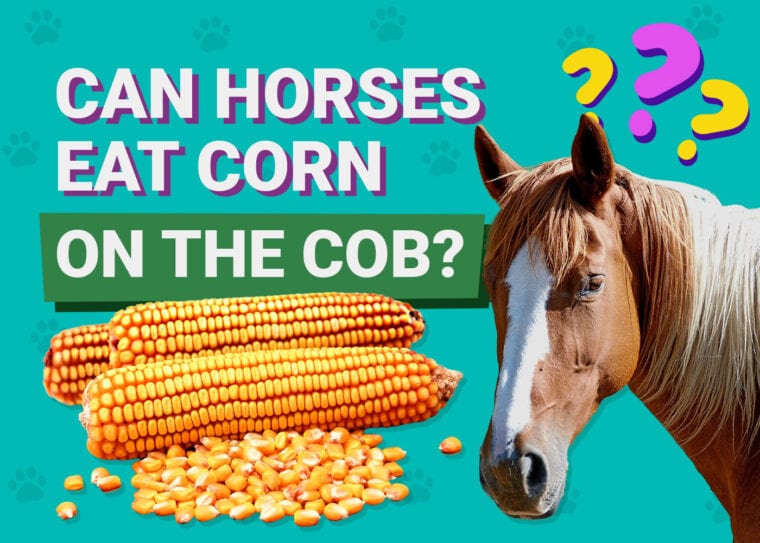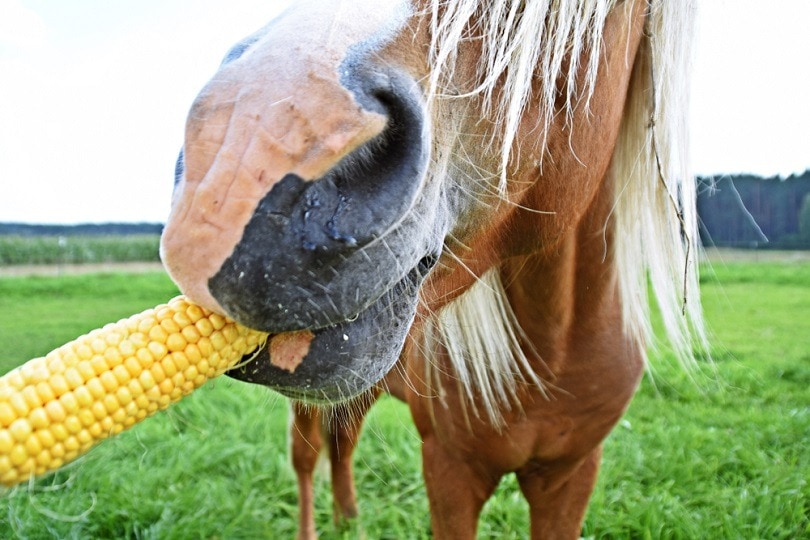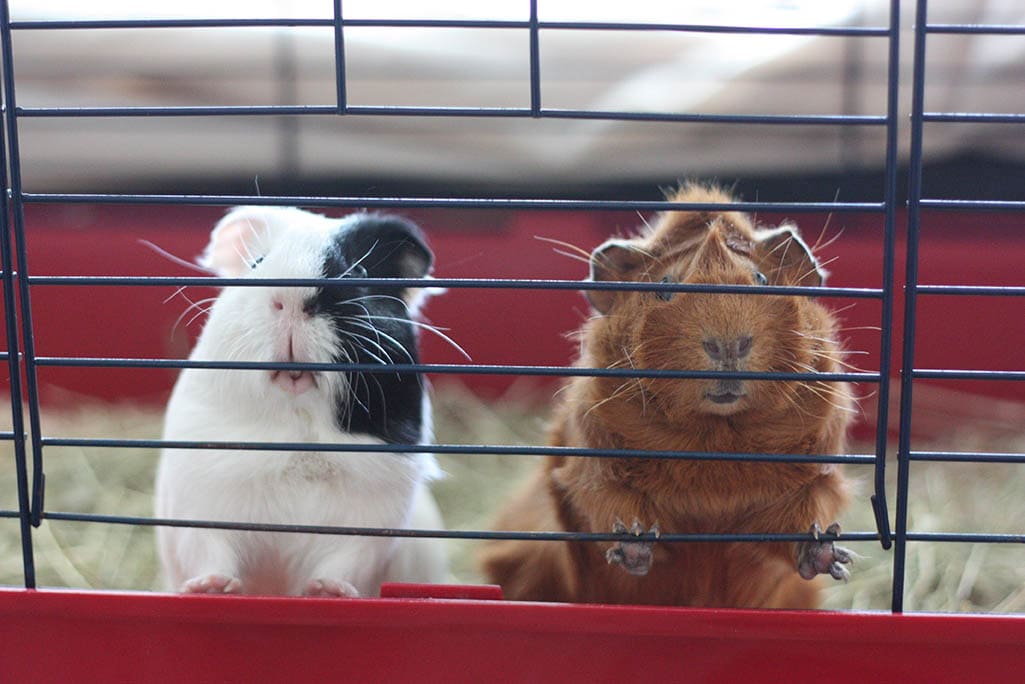
Yes! Hoses can eat corn on the cob. However, there is so much you need to know before you think of sharing that corn with your horse. Corn in itself is neither toxic or poisonous, but that’s not the yardstick for determining what to feed your horse or any other pet. In this case, the concern quickly shifts from, “Can horses eat corn on the cob?” to “What am I exposing my horse to?”
What Does Corn Contain?
Corn is a widespread ingredient in many livestock feeds. Even though it doesn’t contain the majority of the essential amino acids, it boasts of a high carotene content that horses use to produce the crucial vitamin A for optimal vision.
Corn has a lower fiber but a higher starch content as compared to other grains such as oats. Furthermore, it can produce twice as much energy produced by oats per volume. For this reason, be very careful with your horse’s weight, especially when they do not have an effective way of utilizing the extra energy.
The grain has a low amount of calcium, and approximately 75% of its phosphorus is bound to phytate. This means it is not readily available, which further compromises calcium availability. The scarcity implies that you will have to exploit other sources of calcium.
Corn generally has the same ratio of omega-6 to omega-3 as corn oil, with an omega-6 to omega-3 ratio of 49:1. Thus it would be best to feed your horse with a good quality forage to offset this ratio.

What Type of Corn Is Safe for Horses?
It would help if you were very careful when feeding horses with corn on the cob. It is even safer to avoid it in the first place because the horses are highly likely to choke. Unlike choking in human beings, which is caused by food entering the airway, horses choke when food sticks in the esophagus. This emergency will require your vet’s intervention but remember saving the horse may be futile. With all the other feeds available, giving horses corn on the cob is not really necessary, especially now that it poses a death threat.
Processed corn is safe and easy to digest for horses. You can also provide alternatives like cracked corn, steam flaked, or rolled corn. When feeding horses with corn, be very careful to avoid overfeeding, particularly when you substitute volume for volume with oats. Flaking corn before feeding makes it easier for them to digest.
Processing corn also improves its utilization, but unfortunately, it predisposes the corn to molds that contain mycotoxins. It’s important to note that of all the feeds given to horses, corn is the one that is contaminated in most cases.
When quality corn is fed correctly in a well-balanced diet with adequate fiber, it fits horses’ nutritional requirements and is safe.
Can All Horses Eat Corn on the Cob?
Older horses will always have difficulties when consuming corns due to dentition issues. An old horse or poor teething will have challenges chewing corn on the cob, which might compromise digestion and subsequent weight loss, among other discomforts like choking.
Consider feeding your horse with easy to chew and digestible food. Since corn is rich in starch, avoid feeding obese horses as it will worsen weight issues. Corn is also not good for horses with insulin resistance as this will dispose of elevated blood sugars, which is dangerous.

How to Feed Corn to a Horse?
You can steam flake, crack, or roll corn and add it to a mixture before feeding. It is not advisable to use corn as the sole grain for horses due to its high starch content. You can mix the corn with other grains to balance the amount of starch your horse gets.
Processing has been effective in reducing the amount of fermented starch in a horse’s intestines. It disrupts the structure of starch, making it more vulnerable to digestive enzymes in the intestines. Also, consider using commercial corn since it is tested for mycotoxins.
Which Horses Should Eat Corn on the Cob?
Corn is a palatable grain that gives a lot of energy, making it ideal for horses to maintain an excellent body condition. This is ideal for horses with a high level of activity, such as working and performing horses. As mentioned above, all obese and insulin-resistant horses should not be feed on corn.
What Other Concerns Should You Have When Feeding Horses With Corn?
Corn is susceptible to molds that produce mycotoxins. Since the toxins do not reduce the palatability of corn, they will eventually end up in your horse’s body. This might have adverse consequences on their health.
Fumonisin toxin causes a neurological condition known as moldy corn disease that causes degeneration of the brain’s white matter, resulting in loss of vision, altered coordination of various functions, and death.
Some toxins are produced while corn is growing and are dependent on harvesting, handling, storage. It is important to note that hay and any other kind of grain will become moldy if not properly stored. For this reason, it is advisable to acquire your corn from some reputable commercial suppliers who frequently test their corn to exclude toxin contamination.
Starch is usually digested in the small intestine; with excessive corn, starch will surpass the small intestine and enter the large intestine without digestion. This will negatively impact the balance of normal flora that are required to digest fiber. When converted by microflora to volatile fatty acids and lactic acid, it will result in diarrhea, colic, and laminitis.

Cost Concerns
Corn is a more starch-packed feed than other options like oats. However, there is a concern that since it is a raw material in the production of biofuel, there will always be competition on whether to channel it to animal feeds or the making organic fuel. When the demand for biofuel increases, corn prices will limit its availability as a livestock feed. Consequently, this is going to increase the cost of all feeds used for livestock production.
Summary
Corn on the cob can be a good meal for your horse when given in good modulation. We should feed our horses with processed commercial meals to minimize choking and ensure they quickly digest their meals.
Related reads:








